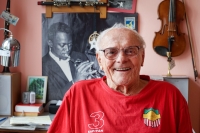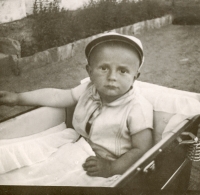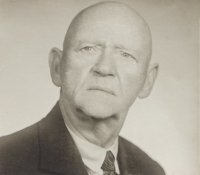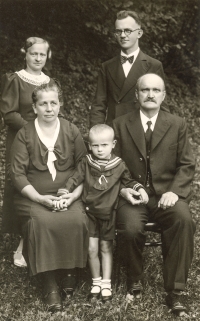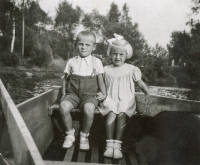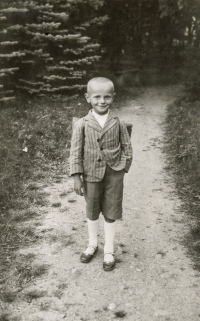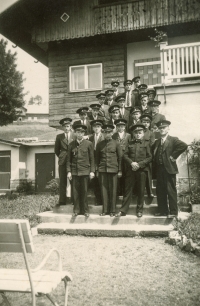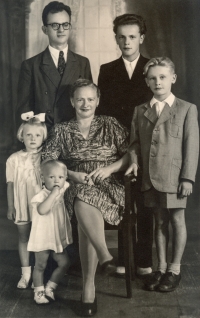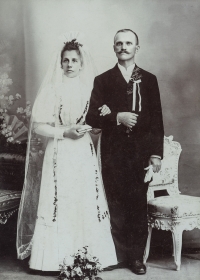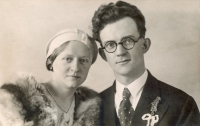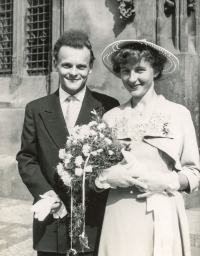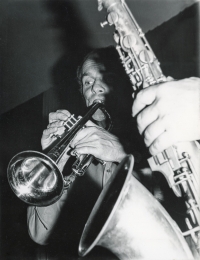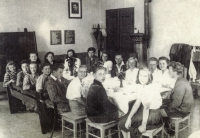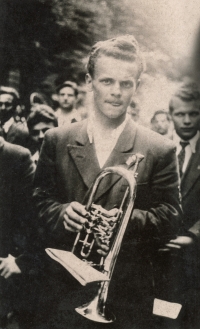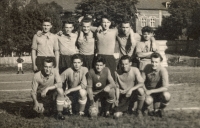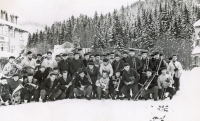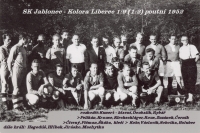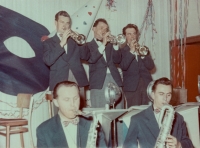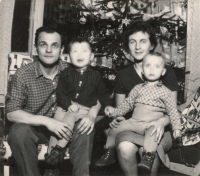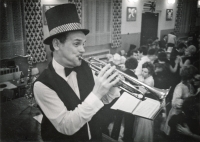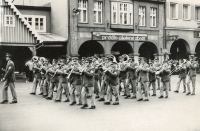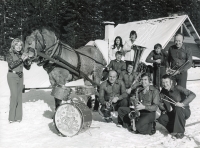In the year 1969 a noose hung on the town hall with the inscription Nosnost jeden komunista [Load Capacity: One Communist]
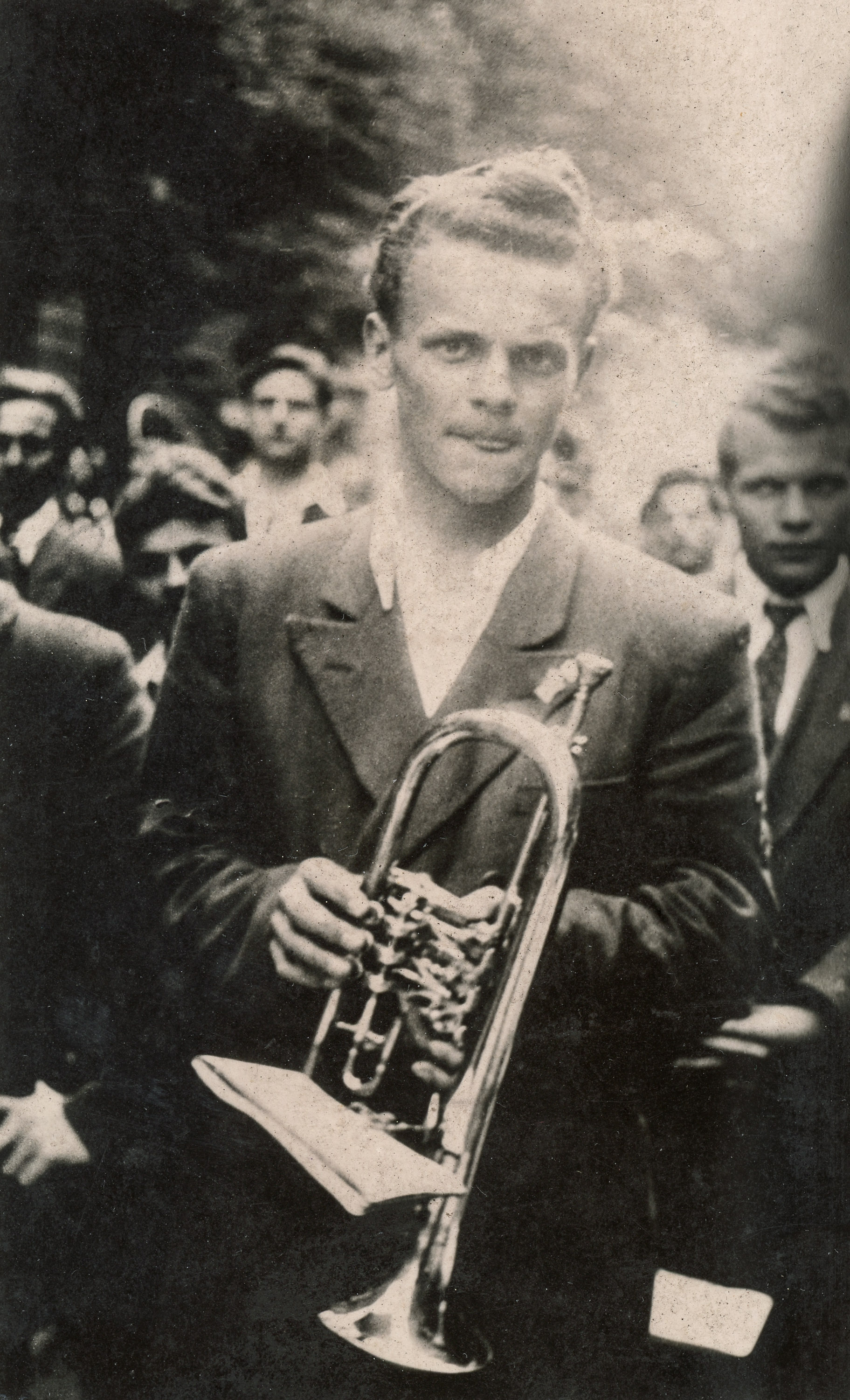
Download image
Karel Pičman was born on the 15th of October 1933 in Jablonec nad Jizerou. He experienced his childhood in a Czech-German environment, both ethnic groups lived here side by side quite peacefully. Their relations only worsened mainly after the beginning of the Second World War. From a young age he loved music, he could play the violin and the clarinet. During the war he played at weddings and at funerals as the youngest musician in the orchestra. At twelve years old he played at the celebrations of victory in May 1945, in which Soviet soldiers participated. After the war he started attending Scouting, he took his oath already in the year 1945. During the wild expulsions he saw the rough treatment of the Germans. In the year 1948 he went to go apprentice as a trumpet maker and he became an excellent trumpeter. After his apprenticeship he moved to Vrchlabí, where he started working at the local branch of the company Škoda Auto. He took part in countless different orchestras, he especially loved jazz. His father was an ardent communist. Different from his son, who saw through the basis of communism quite well. In the year 1968 Karel Pičman became the chairman of the Revolutionary Union Movement [ROH] in Škodovka as an independent and a supporter of the Prague Spring. He signed Dva tisíce slov [Two Thousand Words]. As a musician he took part in the tumultuous victory celebrations in Vrchlabí of the Czechoslovak hockey team against the Soviets at the world cup. Still in this year he was thrown out of his employment and his children were not allowed to study. He could change all of that, if he joined the communist party. Despite facing strong pressure, he never did it. He spent the next thirty years as a music teacher at the people’s music school, where he stayed until his retirement. He played in church during the last farewell with Pavel Wonka in Vrchlabí, or at Hrádeček during the event of the birthday of Václav Havel. After the Velvet Revolution he founded a dixieland orchestra, which toured around Europe. In the year 2023 he lived in Vrchlabí.
